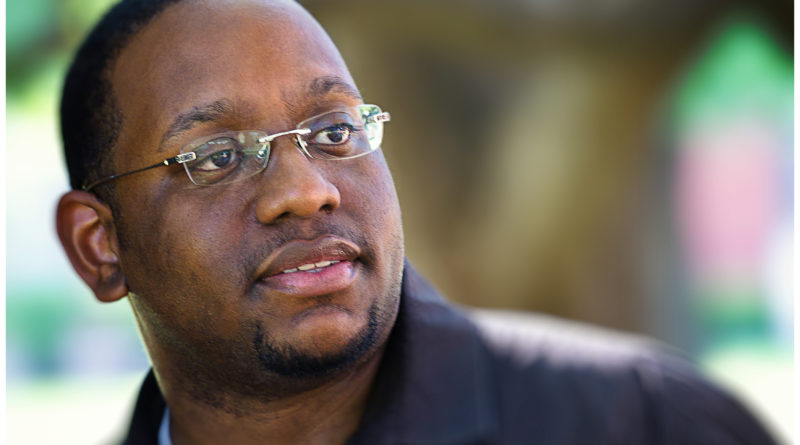The Truth Truthfully by Jason Hines
Shortly after the Inauguration, The Federalist posted an article declaring Donald Trump the type of president a postmodern America should produce. In this piece, the author promoted Trump as an anti-hero, a truth-teller who exposed the hypocrisy of politicians on both the right and the left. This statement may have elements of truth; however, that truth is built on a faulty premise. There are many misconceptions about postmodernism. For many who have heard of the term, the idea boils down to the idea that people who subscribe to postmodernism do not believe in absolute truth and all truth is relative. The author of the post falls prey to this lack of nuance. He describes postmodernism as the “common presumption that all truth is relative, morality is subjective, and therefore all of our individually preferred “narratives” that give our lives meaning are equally true and worthy of validation.” He goes on to assert that the postmodern man “believes in nothing and values nothing.”
These descriptions of postmodernism lack detail, structure, and subtlety. Although postmodernism does by its very nature defy definition, it does not mean that it cannot be pinned down in certain ways. A better meaning for the concept comes from Dr. Barry Harvey. He defines postmodernism as “A style of thought which is suspicious of classical notions of truth, reason, identity, and objectivity, of the idea of universal progress or emancipation, of single frameworks, grand narratives or ultimate grounds of explanation.” Moreover, contrary to popular opinion, there are principles that the postmodern mindset values, and some of those principles find commonality in the Christian ethos. In particular, these principles are truth, freedom (or free will), and community.
It must be strange to come to the realization that postmodernism believes in truth. There is a belief that truth exists. The problem is not whether truth exists but whether we can trust ourselves to fully determine it. That is why postmodernism is often defined by the belief that truth is subjective. The real concern is not the claim of absolute truth, but the claim of absolute knowledge. Of course, Christianity is also concerned with the truth and believes that it can provide answers. The Bible describes truth as a requirement to be in the presence of God (Psalm 15:1,2). Of course, the Messiah is also described “full of grace and truth.” Finally, Paul advocates speaking the truth in love as an element of spiritual maturity. This concept is not far from the authenticity that postmodernists seek.
From the perspective of the individual, both Christians and believers in postmodernity emphasize freedom and free will. Postmodernists believe that their identity does not have to be rigid and that the story of the individual is of utmost importance. In order for a person to determine what is true they must have the freedom to search and discover and the free will to act on what they believe. The same is true for the Christian. Each Christian makes the decision to be a disciple of Christ, and must have the free will to make that decision and the freedom to live it out from day to day. So in Galatians Paul talks about freedom as the goal of the Christian experience when he writes, “It was for freedom that Christ set us free; therefore keep standing firm and do not be subject again to the yoke of slavery.” (Galatians 5:1)
Finally both Christians and postmodernists are concerned with the idea of community. For the postmodernist, community is rare, precious, and elusive. However, it is the very concept of community that drives the postmodern focus on pluralism. Community also is a central factor in postmodernism’s de-emphasis on individual belief. For the postmodernist, differences of belief should not stand in the way of forming community. For the Christian, the biblical record is replete with the concept of community. The entire Old Testament can be read as the story of God’s striving with one particular, diverse community. Every New Testament epistle is the record of love and concern sent to nascent communities learning to navigate a new, freely chosen lifestyle. The centerpiece of the New Testament is the advent of Jesus Christ, who sought to establish a new community that was not of this world.
Anecdotally I find that Christians describe postmodernism as a pejorative. As a community we bemoan the old days where people believed in something and truth was stable and known. I do not believe that living in a postmodern world is a negative. Instead I see it as a great opportunity. It is not that the postmodern mind rejects truth, it is just that the truth has to be accepted on individualistic terms. In other words, Christianity no longer has culture to rely on to do the hard work of laying the foundation by which people will come to accept religious claims. Instead, if Christianity is going to thrive in this era, above all, we will have to learn how to speak the truth truthfully. Our beliefs are no longer assumed; our ideas will not be accepted without challenge. We will have to work harder and be more accommodating. We will have to talk about faith as what it really is – a set of beliefs as opposed to a set of facts. We will have to present ourselves as what we really are (or at least should be), people who continually seek truth, not people who are arrogant enough to believe we found it all.
Jason Hines is a former commercial litigation attorney who left the legal profession to become an academic. Now armed with a Religion degree from Andrews University and a PhD in Religion, Politics, and Society from the J.M. Dawson Institute at Baylor University, he teaches religion, law, and ethics classes at Adventist University of Health Sciences in Orlando, FL.

